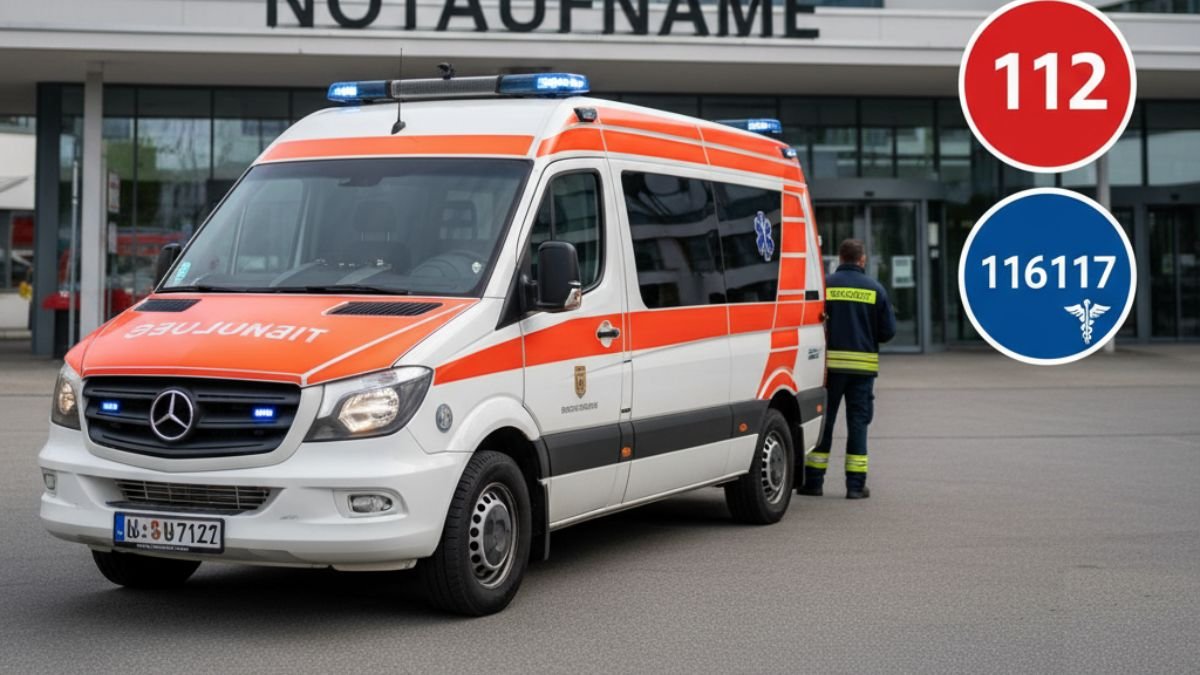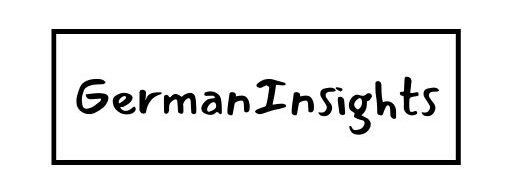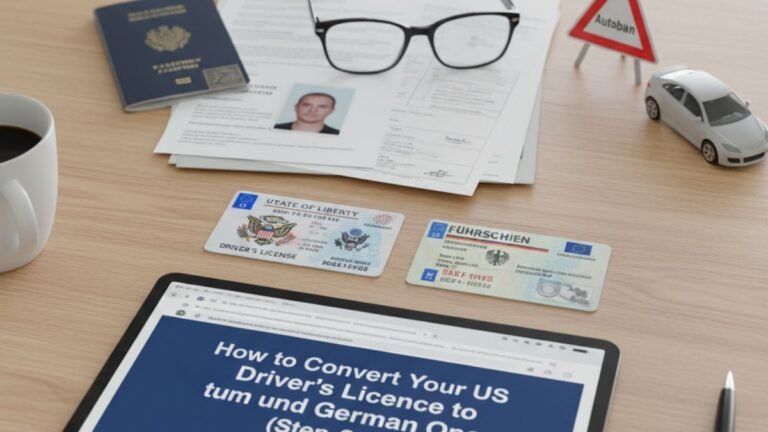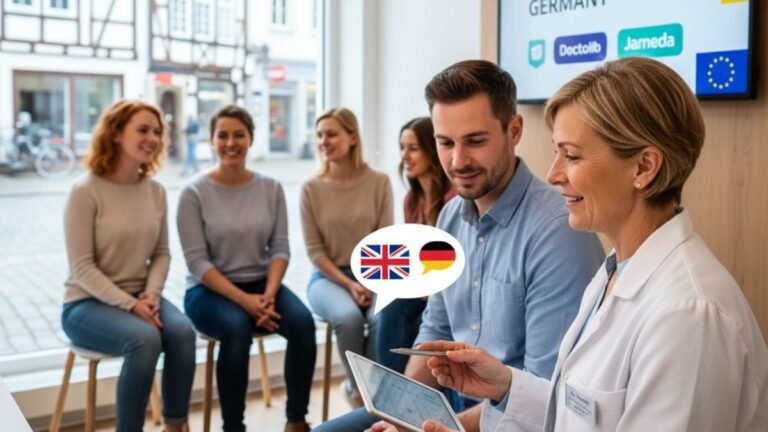Medical Emergencies in Germany: Who to Call and Where to Go

In a life-threatening medical emergency in Germany, dial 112 for an ambulance and fire services. For urgent but non-life-threatening situations outside of normal doctor’s hours, call 116 117.
Germany has a highly efficient and well-structured healthcare system, but knowing the right numbers to call and the appropriate places to go can make a critical difference in a moment of crisis. This guide will walk you through the essential steps to take during a medical emergency in Germany.
The Two Crucial Emergency Numbers: 112 and 116 117
The most important takeaway is understanding the distinction between Germany’s two primary medical emergency numbers. Choosing the right one will ensure you get the appropriate level of care swiftly.
Dial 112 for Life-Threatening Emergencies: This is the universal emergency number across the European Union. You should call 112 in situations that are serious and potentially life-threatening. An ambulance, often with a paramedic and an emergency doctor (Notarzt), will be dispatched to your location.
When to call 112:
- Signs of a heart attack (severe chest pain, shortness of breath, pain radiating to the arms)
- Symptoms of a stroke (sudden numbness or weakness in the face, arm, or leg, especially on one side of the body; confusion; trouble speaking or seeing)
- Severe accidents with serious injuries
- Loss of consciousness
- Heavy bleeding
- Severe burns
- Acute difficulty in breathing
When you call 112, be prepared to answer the following questions (the “W” questions):
- Wo ist es passiert? (Where did it happen?)
- Was ist passiert? (What happened?)
- Wie viele Verletzte? (How many injured?)
- Welche Art von Verletzungen? (What kind of injuries?)
- Warten auf Rückfragen! (Wait for further questions!)
Operators often speak English, especially in urban areas. Stay on the line until the operator tells you it’s okay to hang up.
Dial 116 117 for Non-Life-Threatening Urgent Medical Needs: For urgent medical issues that are not life-threatening but cannot wait until your regular doctor’s office is open, you should call the Ärztlicher Bereitschaftsdienst (medical on-call service) at 116 117. This service is available 24/7. They can provide medical advice over the phone, direct you to a nearby on-call practice (Bereitschaftspraxis), or arrange for a doctor to make a house call if necessary.
When to call 116 117:
- High fever, especially in children
- Severe sore throat, earache, or flu-like symptoms
- Acute gastrointestinal issues (vomiting and diarrhea)
- Sprains or strains from a minor accident
- Urinary tract infections
- The need for a prescription for urgent medication outside of regular pharmacy hours
The Role of Your Primary Care Physician (Hausarzt)
Your Hausarzt is your first point of contact for most non-emergency medical issues. During regular office hours, you should always try to contact your doctor’s practice first. If you have an urgent issue, many practices have an “open hour” (offene Sprechstunde) where you can be seen without an appointment, though you may have to wait.
Outside of office hours, if you call your Hausarzt’s practice, you will often hear a recorded message that will either provide the contact details for the doctor on call in the area or direct you to call the 116 117 service.
Going to the Emergency Room (Notaufnahme)
You can go directly to a hospital’s emergency room (Notaufnahme) for urgent medical problems. However, it’s important to understand that this is for genuine emergencies. If your condition is not life-threatening, you may face long waiting times as patients are triaged based on the severity of their condition.
Upon arrival at the Notaufnahme, a nurse will assess your condition through a process called Triage. This system prioritizes patients with the most critical needs. You will be asked about your symptoms and medical history. Be prepared to present your health insurance card (Gesundheitskarte) and a form of identification.
Costs and Health Insurance
If you have German public health insurance (gesetzliche Krankenversicherung), the costs for emergency medical services are generally covered. However, some co-payments (Zuzahlungen) may apply:
- Ambulance Transport: There is typically a co-payment of €10 for an ambulance ride.
- Emergency Room Visit: While the treatment itself is covered, you may be charged a practice fee (Praxisgebühr) if you do not have a referral from a doctor, though this is becoming less common.
- Hospital Stay: If you are admitted to the hospital from the emergency room, a co-payment of €10 per day is usually required for a maximum of 28 days per year.
Private health insurance plans vary in their coverage, so it is advisable to check your policy details.
What to Do After an Emergency
Following an emergency, it’s crucial to arrange for follow-up care. This usually involves visiting your Hausarzt to discuss the emergency treatment you received and to determine the next steps in your recovery. The hospital will provide you with a discharge letter (Entlassungsbrief) that you should give to your doctor.
Additional Resources
- Emergency Pharmacies To find a pharmacy open outside of normal hours, you can call 0800 00 22 833 from a landline or 22 8 33 from a mobile phone.
- Poison Hotline In case of suspected poisoning, contact the regional poison control center. The Federal Office of Consumer Protection and Food Safety (BVL) lists these numbers. For life-threatening situations, always call 112 first.
- Dental Emergencies There is an on-call dentist service (Zahnärztlicher Notdienst) available for dental emergencies.
Information for Tourists
- Cost Tourists without insurance are required to pay the full cost of medical care. An emergency room visit can cost between €200 and €500 or more. Ambulance transport can range from €200 to €400. It is highly recommended to have travel health insurance.
- EHIC/GHIC Visitors from the EU can use their European Health Insurance Card (EHIC), and UK residents can use their Global Health Insurance Card (GHIC), for emergency care under the public healthcare system. This may not cover all costs, and co-payments might still be required.
By understanding these key components of the German emergency medical system, you can be better prepared to act quickly and effectively in a time of need. Remember to save these important numbers in your phone and have your health insurance information readily accessible.
If you’re looking for more blog like How to Make a Doctor’s Appointment in Germany and Health Insurance in Germany subscribe to join us.






